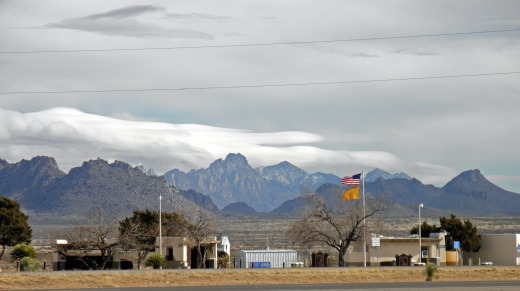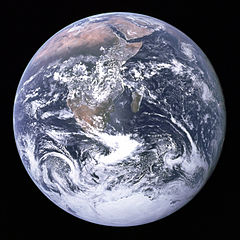The Wilderness
When John the Baptist came out of the wilderness from across the Jordan, he was not A voice crying in the wilderness but THE voice that had come out of the wilderness crying repent!
A voice cries out: ‘In the wilderness prepare the way of the Lord, make straight in the desert a highway for our God. Every valley shall be lifted up, and every mountain and hill be made low; the uneven ground shall become level, and the rough places a plain. Isaiah 40:3-4.

- The Jornada dle Muerte is safer now. Interstate 25 traverses the region and place to rest and refresh are found along the highway.
The words of the prophet Isaiah remind of U.S. Route 85 that stretched from El Paso, Texas north to Albuquerque, New Mexico. As I remember it, the road was in serious need of widening and smoothing. As a college student in southern New Mexico, in the mid-to-late 1950s, I often traveled to Albuquerque on U.S. Route 85. In those days, it was a two-lane strip of asphalt that hugged closely to the contours of the earth; it was tedious and at times treacherous. A decade later it was replaced by Inter-State 25 and made it possible to drive to Albuquerque in less than four hours, opposed to nearly six in the old days. The new Inter-State highway filled in the low spots and carved out the high ground. The highway, now virtually level, met the biblical criteria for easing the travel of important people, such as a general of an army or a king.

I cannot help but think of that highway when I read of John the Baptist quoting the words of the prophet Isaiah.[1] The region Highway 85 and the Inter-State 25 was called by early Spanish settlers the Jornada del Muerte—the journey of death. Today the area still carries that name. It is a region of Central New Mexico that once challenged the traveler in ways that highway journeyers even in my college days could not image. It is a large and barren stretch of open and arid plains composed mostly of rocks and scrub brush vegetation. It includes an area of white gypsum sand and a section called the Carrizozo Malpais or Carrizozo Bad Country, or Badlands. The first atomic bomb explosion, at a place unfortunately called Trinity Site, occurred in the Jornada del Muerte.
John the Baptist emerged from a region from across the Jordan just like that part of New Mexico called the Journey of Death—la Jornada del Muerte. I cannot imagine surviving in such a place as the Jornada or the lands across the Jordan, but John the Baptist was a different sort of person—he was a rugged outsider. He had been into the establishment, but he was not a part of the establishment. At first he may have been an oddity. Probably people came out to the Jordan to see the strange preacher. Then he became a breath of fresh air despite the probability his camel hair clothing might have had an odor to it.
When John the Baptist came out of the wilderness from across the Jordan, he was not A voice crying in the wilderness but THE voice that had come out of the wilderness crying repent!
His words, his bearing spoke of needed change. People wearied by oppression, indifference to need, and corruption saw in him a new hope. When John the Baptist spoke people listened. He must have had a booming voice and a magnetic personality. When John the Baptist came out of the wilderness from across the Jordan, he was not A voice crying in the wilderness but THE voice that had come out of the wilderness crying repent! He came for religious and political reform, pointing to the corruption that was stealing the soul Israel. He had appeared out of Jornada del Muerte, so to speak, to do more than announce the coming of the Messiah, he had come to clean up the mess in Jerusalem, the mess in Galilee, the mess in Judah, or wherever the mess in government, religious values, or personal behavior was.
Because of his magnetism, he attracted thousands, frightened potentates, and upset religious hierarchies. He was a big mouth radical who called for social justice. However, like so many revolutionaries, he was not a leader. The leader was to come. That leader would teach justice by words and behavior and model justice by his life.
While John the Baptist had a simple diet of honey and locust (ugh), and wore a camel hair coat, with camel hair turned inside (itch), he didn’t say you have to do the same but he suggested simplicity of life. That call to simplicity of life was aimed at the leaders of Israel—those who had sold out to Rome and believed they found salvation in rules.
John the Baptist accused the people gathering at the Jordan River, and all of us today, of being a “Brood of Vipers.”
Next Sunday, in the Advent readings for this year, John the Baptist will be calling the people gathering at the Jordan River, and all of us today, a “Brood of Vipers.” John accused all the people gathered, and when the people realized he spoke not only of kings and priests but also of them, many asked, “What should we do?” He instructed the crowd gathered around him at the Jordan to repent and to do justice. He said: if you have two coats, give one to someone who does not have one. If you have two loaves of bread, give a loaf to someone in need. Whatever your work, your occupation, do it with integrity, honesty, and consideration for others. Most of all, avoid corruption.[2]
Still today John the Baptist is the right messenger and an excellent teacher especially during this time of year when greed and grasping seem to be the Christmas story. He has come out from across the Jordan to convict twenty-first-century society as a brood of vipers. We live in fear of mass shootings and of terror from overseas and at home. We see the earth in peril. Polar caps are melting, terrible storms devastate the landscape, and drought has endangered our food supply. Certainly, there have been hard and terrible times before. I was born into era of the Great Depression and the ominous forebodings of World War Two, but these times seem different. When the depressed economy was set right, imperialism and fascism were defeated, hope sprung from every breast—good times had finally arrived.
Greed and self-interests control personal behavior so much that corruption in our social structures seems normal.
Today, however, we have societies so divided there seems to be no way to compromise. We have politicians bought by corporations. Greed and self-interests control personal behavior so much that corruption in our social structures seems normal. We have a legal system that often does not exercise justice. Our commerce, based in greed, encourages us to want more and then throw away what we have and buy more. We have people in the media turning their backs on God by turning religion and faithful people into a joke. And, we have religions that call for the murder of innocents in the name of God. Of course, these observations can be classed as generalities. Nonetheless, many, I suspect, in light of the news that overwhelms us, feel despair. The world’s oppressed are on the move by the tens of thousands and borders are no longer secure.
John the Baptist taught the people to repent of greed, atone of despair, and in so doing change life. The Baptist taught overcoming a corrupt system of government, religion, or social inequality begins with each individual. The teaching for us today on the second Sunday of Advent is there is still a voice crying out in the wilderness calling us to make a path ready for the Lord, that path is through us and only you and I, the individuals, acknowledging our contributions to the world’s problems will the world change.
We can respond to John that we are turning away from violence in thought, word, and deed.
Next Sunday, when his accusing finger points to us as part of the “Brood of Vipers,”[3] we can respond, “John the Baptist, we have prayed about our part in contributing to the world’s problems. We contributed by what we have done and have left undone. Our sin separates us from God and neighbor, and we are truly sorry and humbly repent.” We can tell John the Baptist that we have reviewed our priorities, our way of living. We are scaling back and using less of the earth’s resources, sharing our excess with others in need. We are supporting the ministry of Christ in our parish and the ministry other Christian services. We are turning away from violence in thought, word, and deed. We are modeling to others our response to the call to repent so that others may too have positive life-changing experiences.
Repentance, acknowledging our contribution to the world’s problems, is the straight highway John the Baptist wanted for his people in the first century. He knew that a straight and well-developed highway—that is, a way of life—carried Israel through the Journey of Death to a new view of life. That new view of life was would be seen in Jesus, who for was and is today for the world is the way, the truth, and the life.
[1] Luke 3:1-6.
[2] Cf. Luke 3:10-14.
[3] Luke 3:7.
No comments yet.